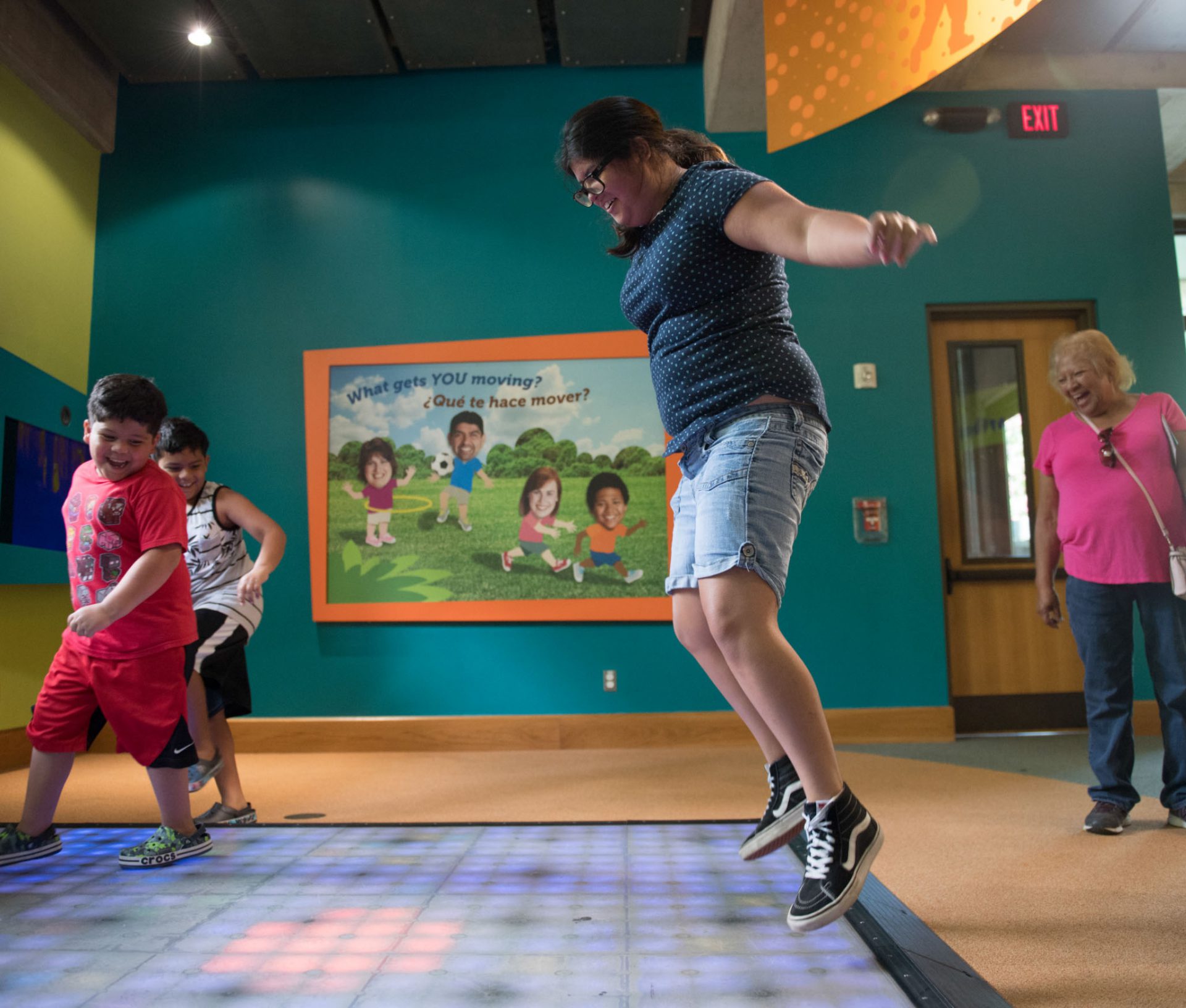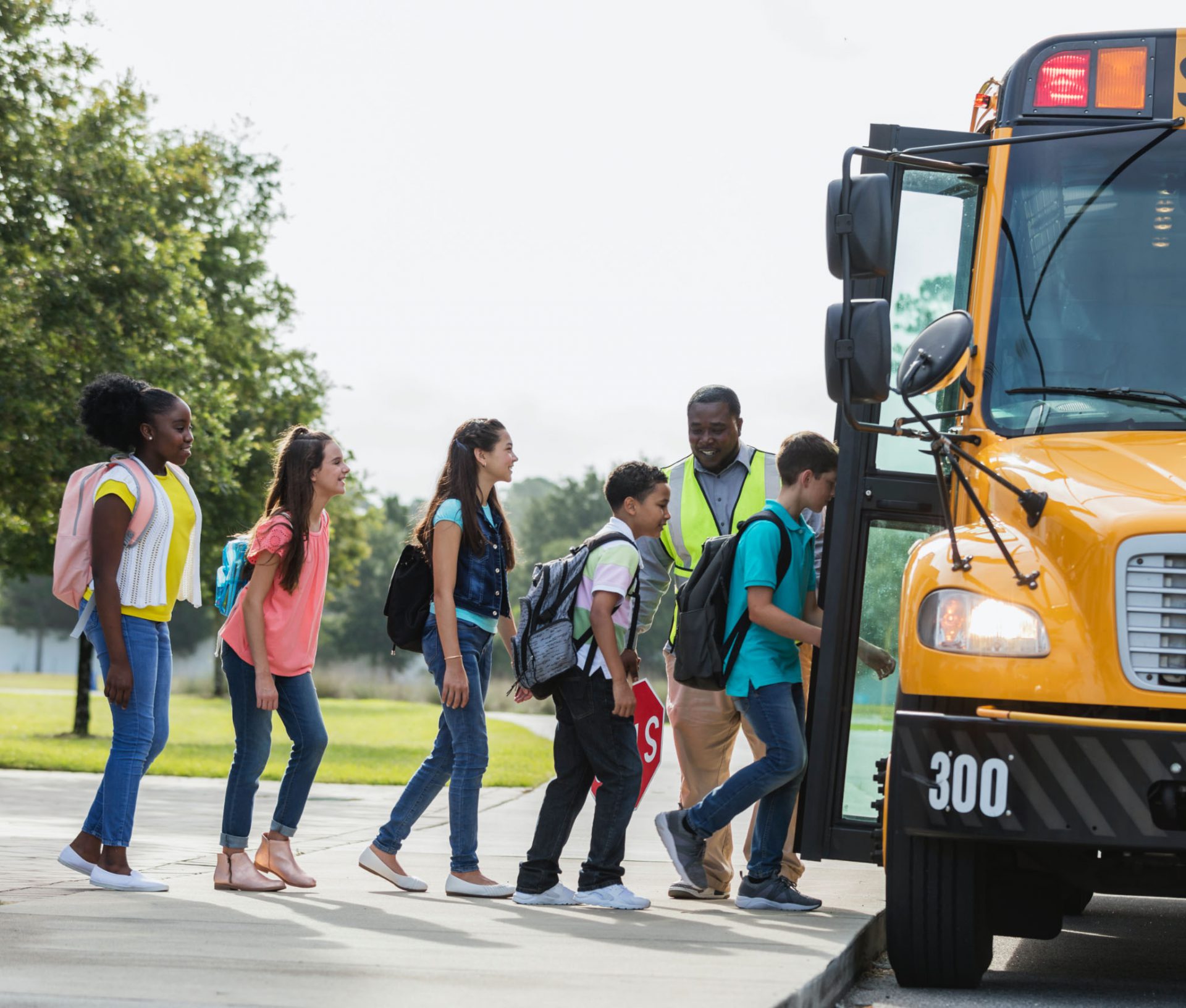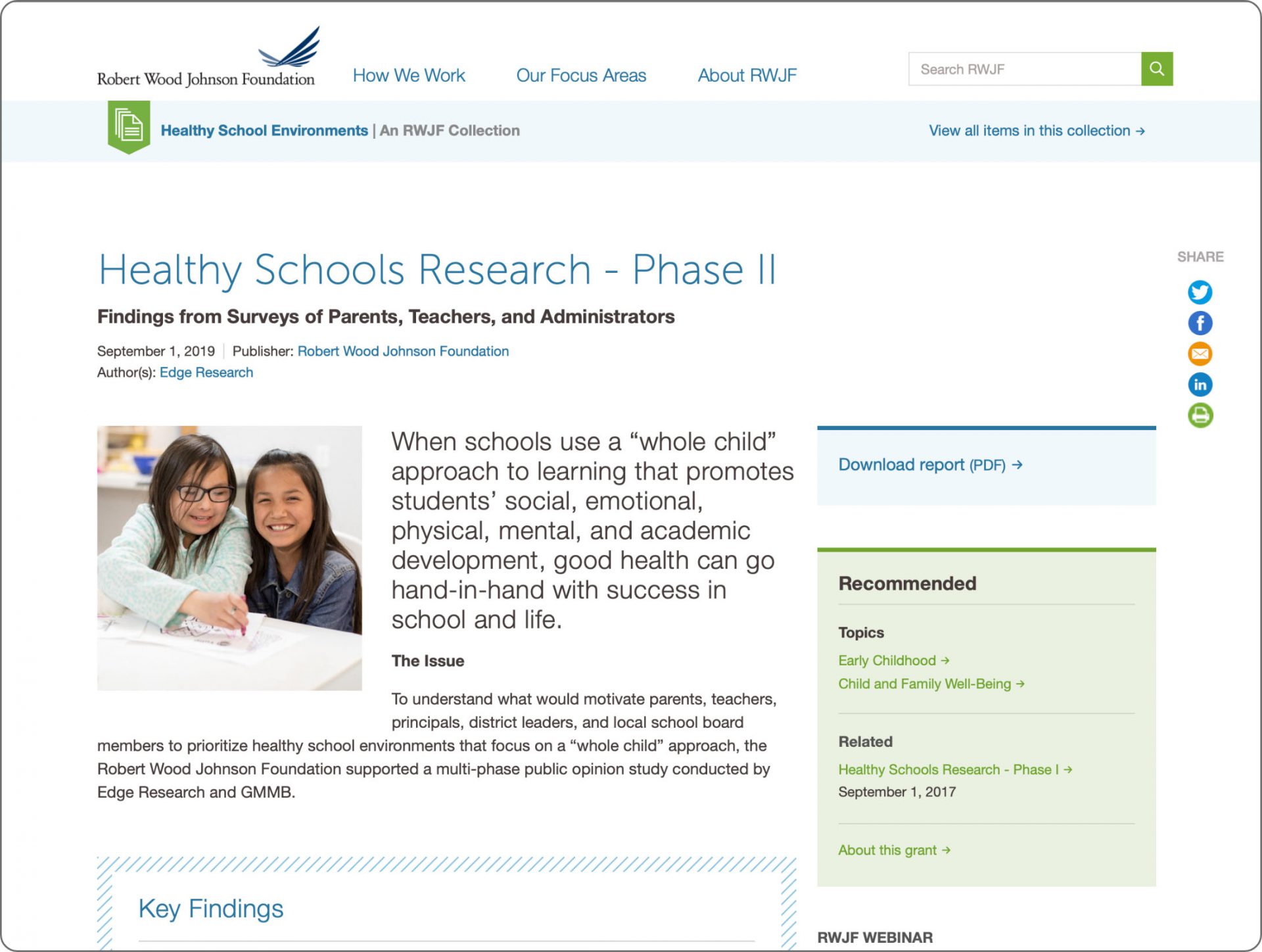Building Public Will
Building public will for a “whole child” approach is possible
Public support is necessary to make the idea of a healthy school for every child a reality.
To better understand what motivates parents, teachers, and school and district leaders to prioritize healthy school environments that focus on a “whole child” approach, Edge Research and GMMB conducted a multi-phase public opinion study.
Here are some key findings from this public opinion research:

A “whole child” approach is key
Parents, teachers, and school leaders say a “whole child” approach is important. They also prioritize teaching “life skills,” such as self-control, kindness, teamwork, and problem-solving. They want young people to become well-rounded adults who can succeed in the real world.

Healthy school programs = academic achievement
Healthy school programs, such as social emotional learning, can lead to greater academic achievement, a majority of survey respondents said. A majority also said such programs lead to students who are more engaged in their learning, better prepared for the real world, and mentally healthier.

Public will for systems change
Survey respondents expressed broad support for systemic solutions. But they also recognize potential barriers. The barriers include the need for more training for teachers, lack of parental engagement, and limited school resources.

Principals are trusted leaders
Principals are viewed as the primary decision-makers when implementing healthy school environments, while school boards and superintendents are viewed as important supporters for funding and systemic integration.

The full research study includes effective message frames to communicate about how healthy school environments can achieve positive outcomes, which can be helpful for organizations working at the intersection between health and education.